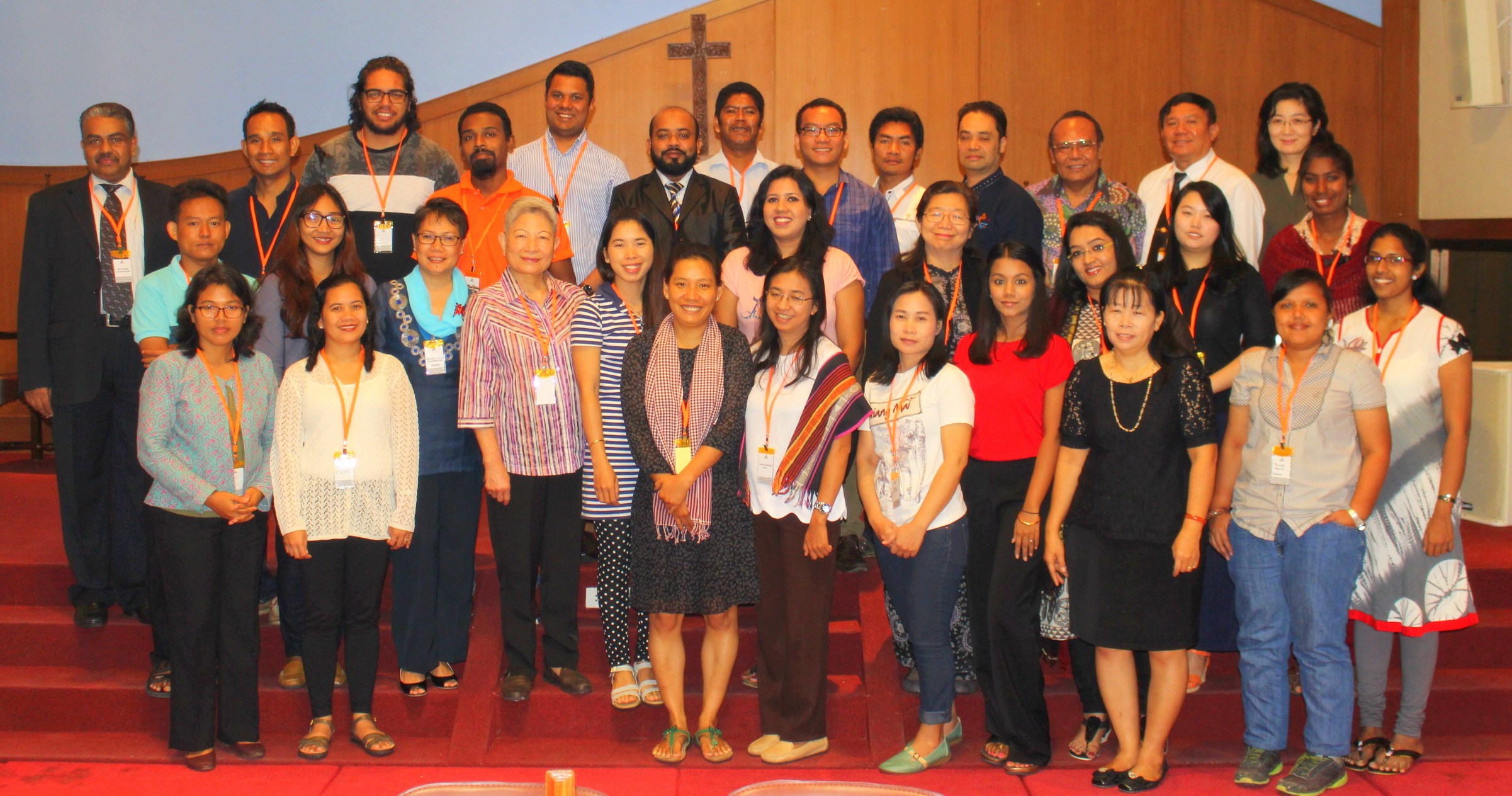CCA Seminar affirms the strategic role of theological seminaries in combating HIV/AIDS

Participants of CCA’s Interfaith Seminar on HIV/AIDS on 7th November, 2016.
A seminar organized by the Christian Conference of Asia (CCA) affirmed the importance of theological seminaries in Asia to develop a strategic role to respond to the growing concerns of the HIV and AIDS epidemic, especially in building HIV-competent churches and communities.
The seminar is being held from 6 to 10 November 2016 in Chiang Mai, Thailand, attended by 33 participants, comprising of theological educators, social workers, representatives of HIV and AIDS advocacy organizations and rehabilitation centers, as well as by representatives of different religions such as Buddhism, Hinduism and Islam.
The participants analyzed the distressing trend of the numbers of People Living with HIV and AIDS in Asia continuing to rise at alarming rates.
The Church is called to be an Inclusive Community that invites people into a community, which is characterized by love, mutual independence and respect. It is important to remember that People Living with HIV and AIDS have lost only their immunity not their dignity and rights; and need, like any other individual, places where they feel safe and valued as being made in the image of God.
Dr. Mathews George Chunakara, General Secretary of the CCA in his opening address stated that, “the efforts made by the CCA over the years demonstrate CCA’s strong commitment to combat the spread of HIV and AIDS and equip churches in their ministry to deal with alarming situations in their respective societies.”
The CCA General Secretary further added that, “CCA will initiate a new phase of the HIV and AIDS program, starting from 2017 for a three-year period with components of awareness-building and advocacy.”
“Theological education plays a significant role in the training of theologians to have a deeper understanding about the concerns of the HIV and AIDS epidemic in Asian communities, accompanied with a heart of compassion which springs out of theological reflection and life-supporting spirituality,” Dr. Alphinus Kambodji, Project Coordinator of the CCA HIV and AIDS Program said.
The main objectives of this seminar are to increase HIV and AIDS awareness on the comprehensive perspective, to mainstream HIV and AIDS issues in the theological seminaries/colleges curriculum and to specifically develop teaching skills on HIV and AIDS issues, based on the theological perspectives of the dignity and rights of all God’s people.










